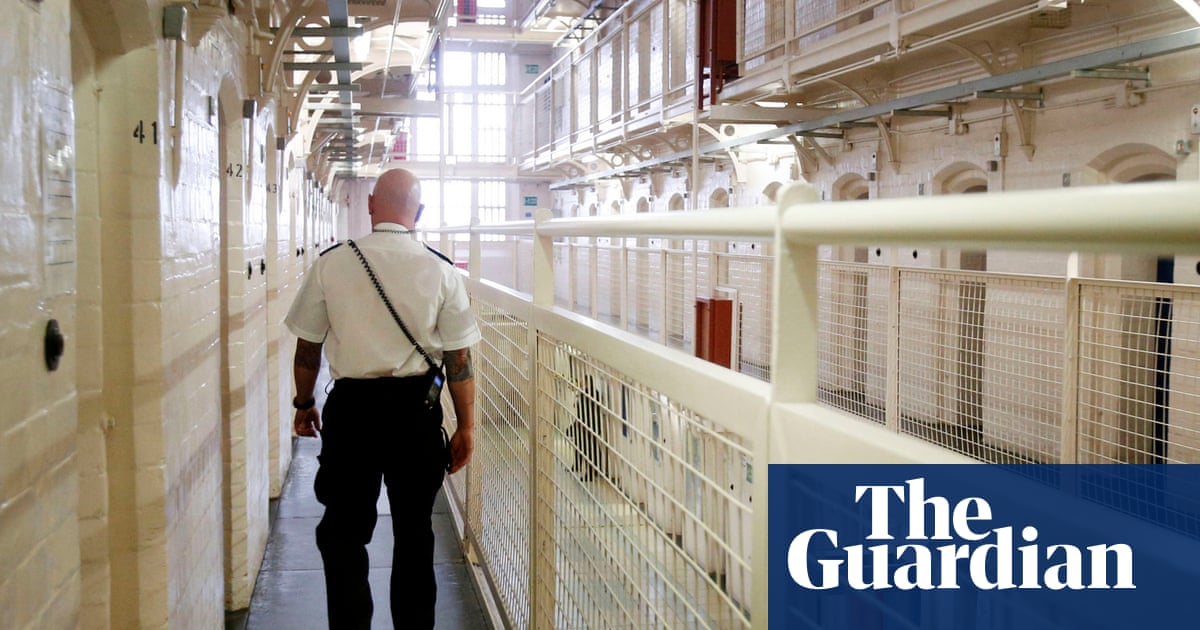Tracking devices inserted under offenders’ skin, robots assigned to contain prisoners and driverless vehicles used to transport them were among the measures proposed by technology companies to ministers who are gathering ideas to tackle the crisis in the UK justice system.
The proposals were made at a meeting of more than two dozen tech companies in London last month, chaired by the justice secretary,Shabana Mahmood, minutes seen by the Guardian show. Amid an acute shortage of prison places and probation officers under severe strain, ministers told the companies they wanted ideas for using wearable technologies, behaviour monitoring and geolocation to create a “prison outside of prison”.
Those present included representatives of Google, Amazon, Microsoft and Palantir, which works closely with the US military and has contracts with the NHS. IBM and the private prison operator Serco also attended alongside tagging and biometric companies, according to a response to a freedom of information request.
Mahmood told the tech companies she wants “deeper collaboration between government and tech to solve the prison capacity crisis, reduce reoffending and make communities safer”. She invited them to “scale and improve” the existing use of tagging “not just for monitoring but to drive rehabilitation and reduce crime”. The prisons minister, James Timpson, called for a “tech-led approach to justice”.
The initiative is the latest sign of the Labour government’s embrace of the technology industry to help deliver efficiency savings in creaking public services from schools to hospitals. In January, Keir Starmer declared that AI was a way “to transform our public services” and spoke about “totally rewiring government”.
The push by the Ministry of Justice follows last month’sreview of sentencingby the former justice secretary David Gauke, which called for fewer short prison sentences and the greater use of AI as well as possible wider use of facial recognition technology in public to help cut the overcrowded prison population by almost 10,000.
At the meeting last month, which was hosted by the industry lobby group Tech UK, ministers asked the tech companies what a “digital, data and technology-enabled justice system” could look like in 2050. Responses included: “Real-time behaviour monitoring and subcutaneous tracking” to support the health, and “behaviour management” of people under the control of the criminal justice system; artificial intelligence advisers to support offenders’ rehabilitation; and robotics “used to manage prisoner movement and containment” including “self-driving vehicles [to] transport prisoners”.
Human rights campaigners called the ideas “alarmingly dystopian” and warned that the meeting suggested the government may be “getting too close to the tech giants”. A second meeting with tech companies is scheduled for Tuesday, with Lord Timpson due to hear 20-minute pitches for new ideas at what officials are calling an “innovation den”.
A government source stressed the ideas raised so far were hypothetical talking points to bring about conversations about the future of offender management to better protect the public.
The justice secretary has previously said she is “not squeamish” about using technology such as “gait recognition”, a type of biometric monitoring of humans’ unique movement patterns, which some believe could help prevent violence in jails before it happens.
An MoJ spokesperson said: “As the public would rightly expect, we continue to explore technology that will help us cut crime, effectively monitor offenders and keep the public safe.”
Donald Campbell, the director of advocacy at Foxglove, a non-profit organisation campaigning for fairer use of technology which obtained the FoI response, called the suggestions “alarmingly dystopian”. “It is chilling to know that justice ministers have sat with the tech sector to discuss using robots to manage prisoners, implanting devices under people’s skin to track their behaviour, or using computers to ‘predict’ what they will do in future,” he said.
Other suggestions from the tech companies included using high-powered quantum computers to “analyse past data to predict future behaviours and create diversion paths” and to automate sentencing calculations in the overstretched probation service.
But there were also fears raised about the consequences of relying too much on technology. One response recorded in minutes was that: “If misapplied, these technologies could lead to dystopian outcomes that are difficult to reverse.”
Campbell said: “The idea that tech companies can produce tools to ‘predict’ crime has been discredited time and again – it is disappointing to see that they are continuing to push it – and that the MoJ is so willing to listen.”
Tech UK, which hosted the meeting, said it was part of efforts to create a fairer, better and more effective justice system. A spokesperson said: “It is essential that the future of justice is shaped with transparency, accountability, and public trust at its core.”
Google, Amazon, Microsoft, IBM and Palantir did not respond to requests for comment. Serco said: “We will not be commenting on this activity”.
